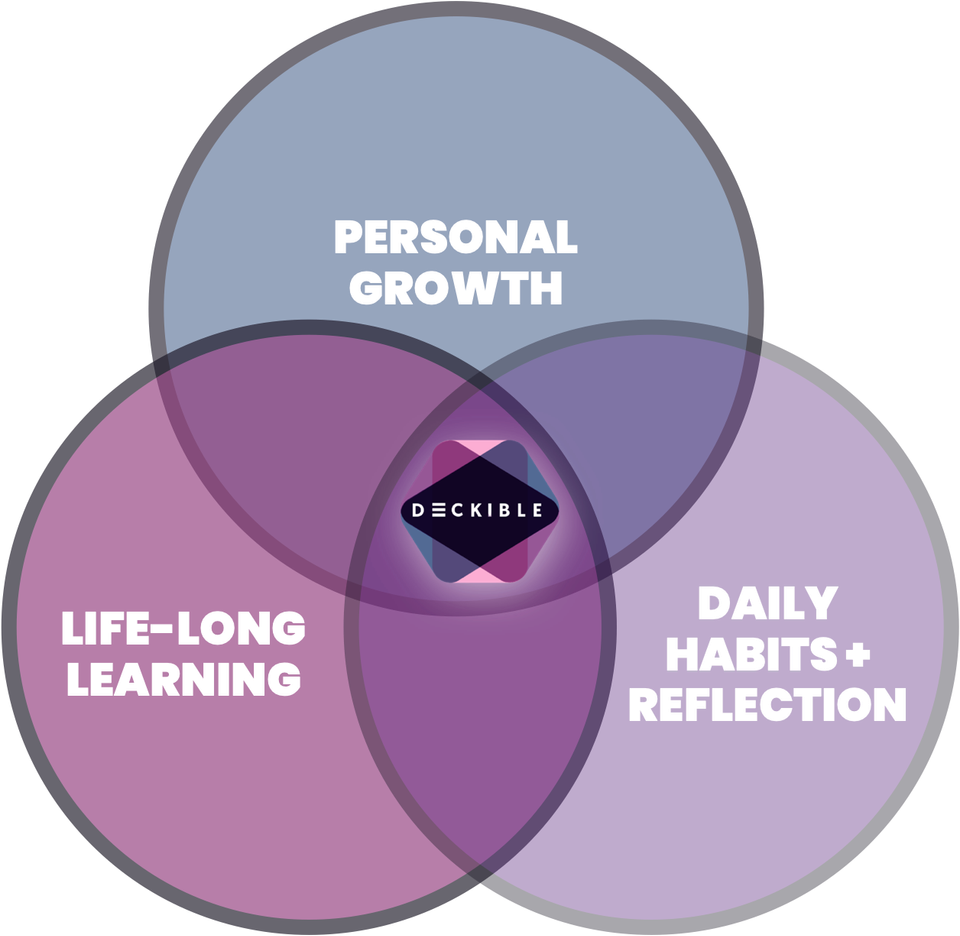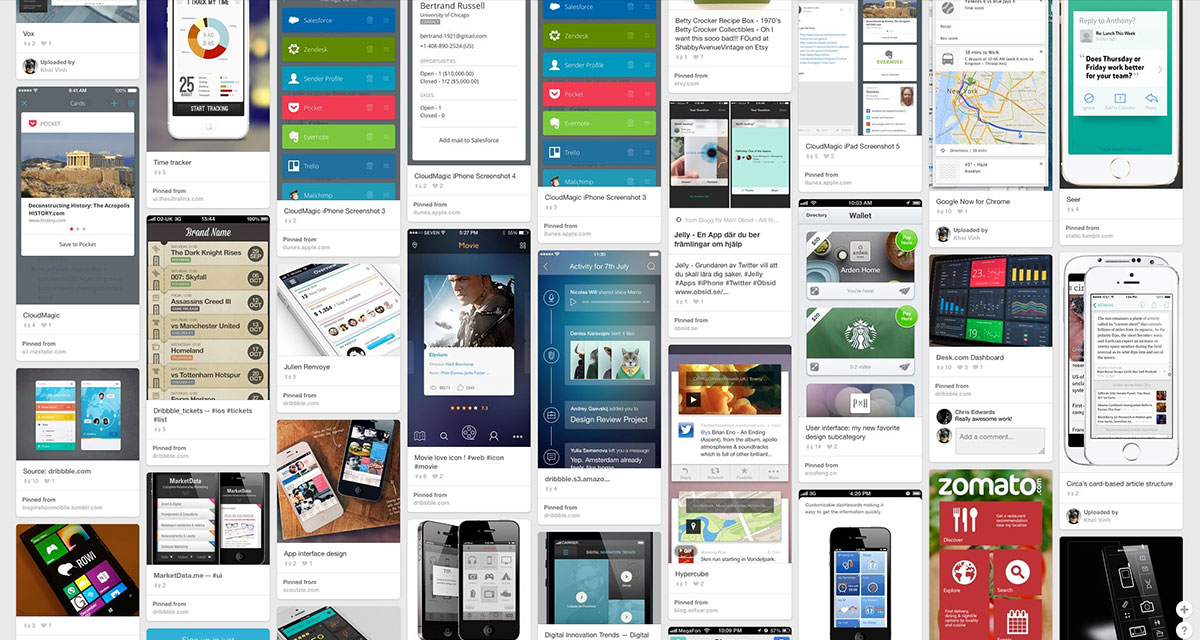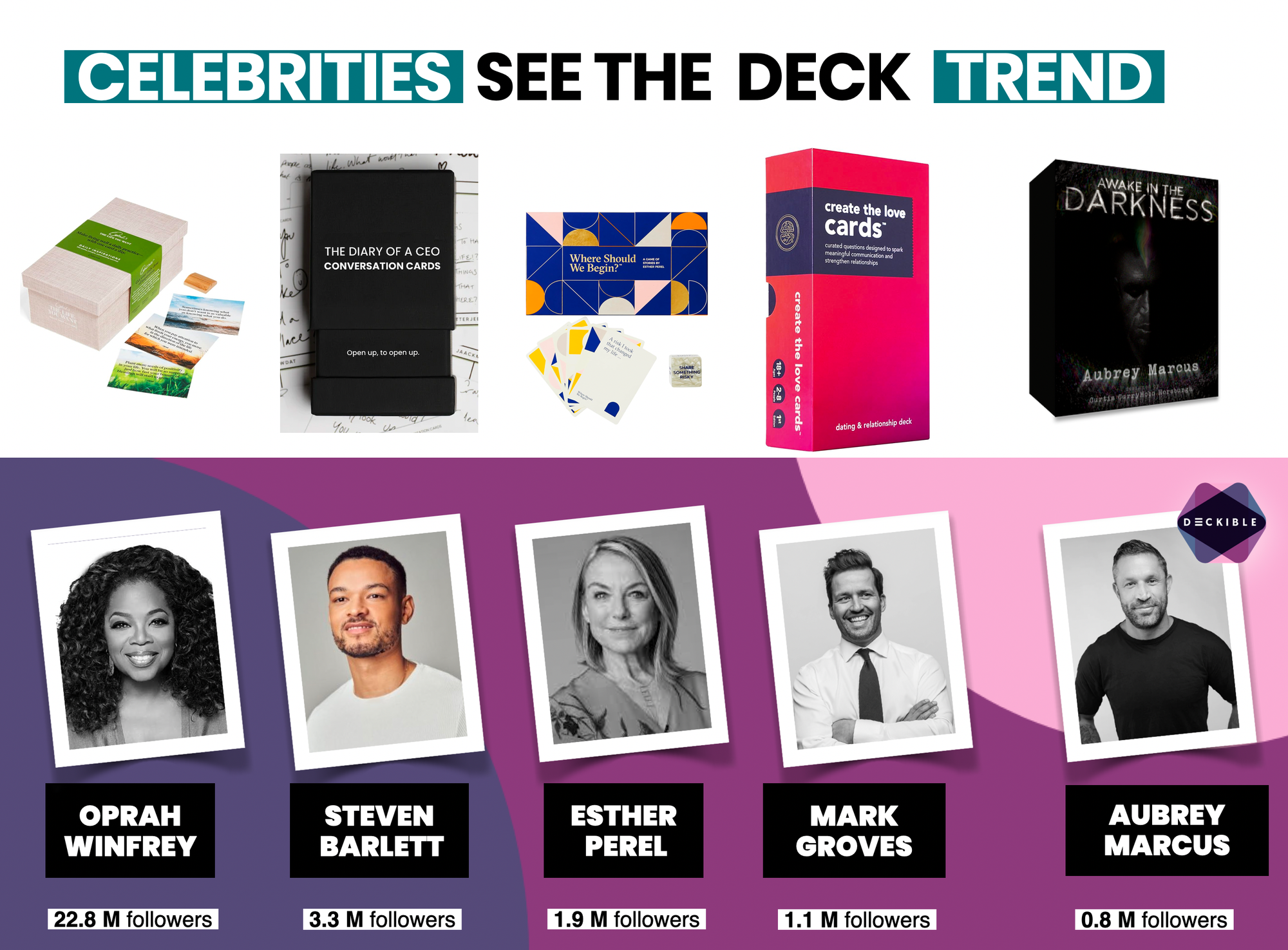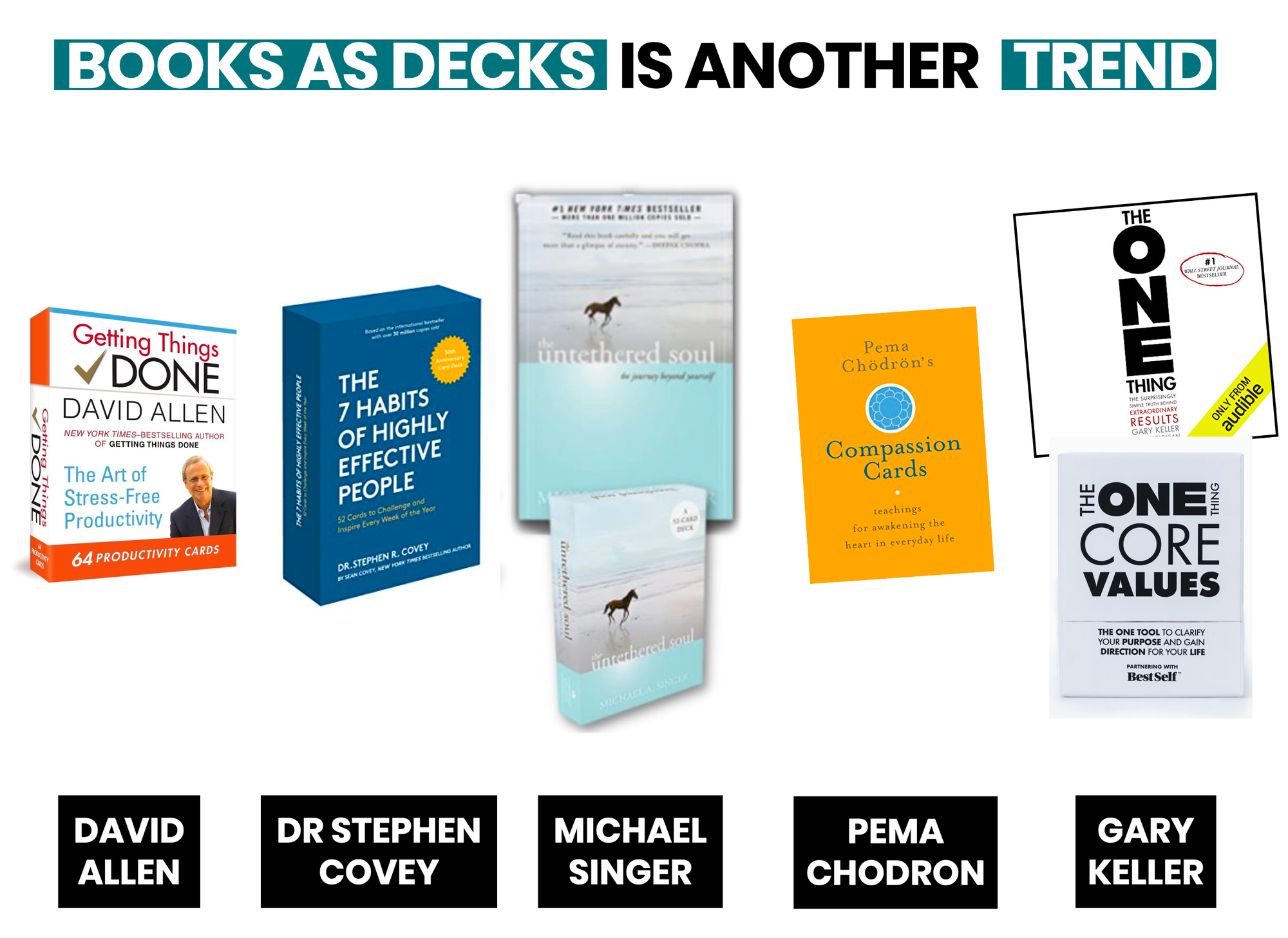The Rise of Digital Card Decks: A Medium for Modern Life

Card decks are a fun building block for life. They are playing an ever expanding role in modern life.
I examine three ideas in this post to explore current societal shifts/trends.
This is a subset of our thinking on why we believe card-decks are the ultimate medium for learning, personal growth and daily habits and reflection.
Card Decks: the Metaphor for Modern Life
The Experience Economy / Creative Class are creating more card decks
Card Decks = Highly Memorable Experiences
These three shifts combine to explain many changes in modern life.
1. Card Deck: the Metaphor for Modern Life
Many people have written on the value of card decks in the design of software interfaces. I list five posts that support this argument. Well worth reading.
- https://www.subtraction.com/2014/08/26/what-is-a-card/
- https://www.nngroup.com/articles/cards-component
- https://medium.com/@erictfree/beyond-the-card-ui-metaphor-6c2306b2ffeb
- https://www.intercom.com/blog/why-cards-are-the-future-of-the-web
- https://www.vox.com/2014/3/14/11624524/for-mobile-apps-like-tinder-cards-and-swipes-rule-the-day

We believe the trend goes further, because the card-deck metaphor is not just a layout tool, as these posts would suggest.
Cards are how we love to learn, study and grow, but more on that later.
We see Tinder using cards in it's unique playful swiping metaphor.
Card decks are the root of engagement and play.
While researching the above, I watched this video by John Wilshire founder of Cardstock, this video also mentions the 4th post listed above.
John is a big user of decks in his business, and the creator or Artefact Cards.
There's also more data over at Dechaholic where Steph Gioia assembles a collection of Card Decks and examines how and why decks are so valuable. Her youtube channel is worth watching. Here's one video:
Card Decks: We all learned via Flashcards
A is for Apple. B is for Bee. Flashcards are a science-based method to remember anything. We have all used flashcard decks and created our own revision cards or speach prompts.

Card Decks: We all played card games together
We all played cards games from a classic 52 card deck to Uno, Pokemon, Apples to Apples, Cards Against Humanity or even Exploring Kittens etc.
Many of us have happy memories of childhood's of playing card games with friends and family. Card decks comes preloaded with positive playful associations. We see a deck and we instinctively shuffle, fan or deal the cards.

2. The Experience Economy / Creative Class are Creating More Card Decks

There is definitely a rise of the Creative Class as highlighted by Richard Florida. 40 years ago very few people created things. Authors, musicians, photographers were a rare breed. Not today.
Today anyone can create a blog, a Newsletter, an Instagram/TikTok feed, a Book, a Song, or a Card Deck.
We seeking rich experiences because they are more meaningful. We have learned to expect and demand personalization. We watch the TV show we want, no compromise. Just grab your own screen. We crave to play with your own deck of cards, it is just more satisfying.
Many people collect card decks, often owning 20-100+ decks. Deckible believes many more people would used decks if they knew they existed and why they are valuable.
Here's three bundles of resources that are driving deck creation/adoption:
- Rise of platforms to enable people to democratize/distribute creativity:
- Kickstarter.com / Ingiegogo.com
- Etsy.com / Ebay.com / Gumroad.com etc
- Canva.com, Fiverr.com
- Print on demand platform allow more people to create:
- Moo.com
- Printify.com
- Ludocards.com, Thegamecrafter.com, Makeplayingcard.com, acelioncards.com, Superiorpod.com et al
- More people are creating Card Decks
- We've identified 50+ Card Deck Creation Courses / Communities (eg on Domestica, Udemy etc)
- With Deckible we work closely with many of these experts offering courses and working with their community of creators:
We estimate today that there are 100k unique card decks in English only. That number is rising fast. Decks are the new book. Publishing is changing fast. 85% of people don't finish books that they start. Even less people finish digital courses.
Celebrities and Influencers see the deck trend
Oprah, Esther Perel & Stephen Bartlett all see the Value of Card Decks. All their products have sold out multiple times

Publisher see the card deck trend
Decks are the new book. Many successful books are released as decks. Decks are become the medium of choice for many because the are short, visual and non-linear.

3. Card Decks = Highly Memorable Experiences

Research shows we remember 90% of what we experience vs 10% of what we read.
Society is evolving from an age of consumption to an age of participation. 20+ years of consuming media has left us wanting more. It is only natural for people to want to participate and be involved in any experience.
It's also proven that we learn best - together, in community.(Slavin, 2018).
There is psychology behind why Digital Decks are the ultimate learning medium:
- Human Participation: Decks are pre-installed with basic human expectation (mentioned above). Moving cards, shuffling, flipping choosing, arranging, ranking, sequencing are all second nature and cultivate focus. It feels good to be involved and participating.
- Non Sequential & Random: Decks are non-sequential and visual, making them the perfect snackable media. In addition randomness is critical because humans tend to be predictable in our choices, we crave fresh input, and it proven how we love random rewards. Cards are visual snacks. Whether you take a secular or a spiritual/religious view, randomness is a good thing. It brings new perspective, new options/ideas and new meaning.
- VAK Model Compliant: We all learn in different ways. Some of us are Visual, some Auditory and some are Kinesthetic. Digital decks offer all three methods, ensuring there is something for everyone. Deckible supports a full range of visual, text, audio, video etc.
Conclusion
Decks are a wonderfully engaging medium. The key is that they are a medium. Mediums change the way we:
- Spend time and money
- Consume content.
The more we have learned as we built out Deckible, the more interesting this becomes. It's certainly a much bigger problem and a much bigger solution that we initially envisaged, but our vision has grown to embrace this potential.
Mediums are disruptive.